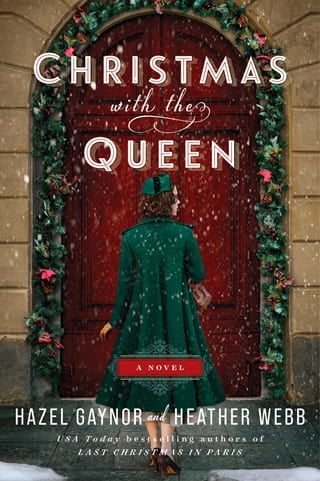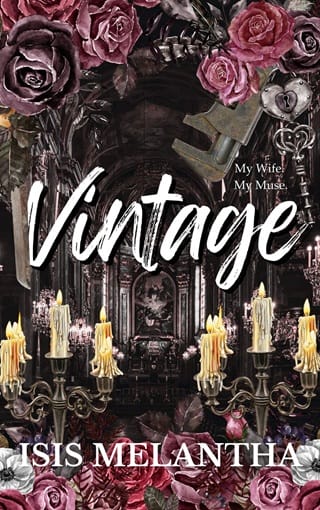Chapter 9 Jack
Chapter 9
Jack
London, 8 May 1945
A fter three long and tumultuous years with the Seabees’ construction battalion of the US Navy, the glorious news finally reached us that Germany had officially surrendered.
As luck would have it, we were docked for repairs in Portsmouth when the news was announced. A group of fellow Navy boys and I took no time to rush to London after the announcement. Soon, we joined the mass of humanity gathered in Trafalgar Square. Victory in Europe Day, in London—it was a day I’d never forget. Every person around me was delirious with relief and joy, coupled with a deep reverence—every toast, every grateful epithet dedicated to all the dear ones we had lost. We cheered, we cried, we prayed in thanks. At last, the darkest chapter of our lives was coming to an end.
We pushed our way through the crowd, carousing with people in the streets, making our way from pub to pub. Every place was packed; people clinked beer glasses or bubbling flutes of champagne; music blared from the wireless, and anyone with an instrument struck up a song.
Eventually, we found ourselves at The Pelican Club. A full swing band played as couples crowded the dance floor. My friends flowed from our table to the bar and then to the main floor, dancing with this woman and that woman. I watched from a distance, envying their confidence. I was a quiet sort of person, serious and sensitive. Always had been, since I was a boy. My awkward invitations, and the likelihood of rejection, kept me firmly planted at the edge of the dance floor, and at the edge of all the fun.
Peter Hall, a lieutenant and a friend of a friend, found my hesitation amusing. “Go on, mate. Get stuck in. Why are you always such a chicken?” He enjoyed ribbing me for no good reason, and I avoided him as much as I could. “Ask a girl to dance. With so many here tonight, someone is bound to take pity on you and say yes.”
I gave him the middle finger.
He laughed uproariously and sauntered off, quickly connecting with a brunette on the other side of the room.
I sipped my drink and looked out over the crowd. An auburn-haired woman in a lemon-yellow dress threw back her head and laughed at something her friend said. She was attractive, but the way she radiated joy made her absolutely captivating.
Ryan Harris, a Royal Navy boy and a buddy of mine, clapped me on the shoulder. “You should go and talk to her.” He lifted two fingers at the barman, who rapidly pushed two pints in our direction.
I took a large gulp of my beer. I didn’t know why I became so tongue-tied and stiff around women. I shrugged. “Nah, I’m fine here.”
“Don’t overthink it,” Ryan replied and took a big swig of his pint. “She’s looking at you. Now’s your chance, old pal!”
I glanced her way several more times, but rather than approach her, I kept pace with the boys at the bar, following the pint with a gin and tonic or two. Eventually, my reserve grew fuzzy around the edges. Emboldened by the booze and the exuberance of the night, I wound my way toward the girl in the yellow dress and tapped her on the shoulder.
“Hello. Want to dance?”
She laughed. “I am dancing.”
“With me, I mean.”
She grinned, reached for my hands, and pulled me onto the packed dance floor. “So, what’s your name, sailor?”
“Jack. Jack Devereux,” I shouted over the music.
“Olive Carter,” she said, smiling again. “You a Yank?”
“How did you guess?” I grinned. “I’m from the south. A New Orleans boy, through and through.”
“I’ve heard southern boys are gentlemen. Is that true?”
“I guess you’ll have to see for yourself.”
We danced to one song after another, occasionally bumping elbows with couples next to us, all the while trying to talk over the noise. She worked in a typing pool for some government ministry or other but had aspirations to work for the BBC. She talked a lot, and then apologized for talking too much and asked about me.
I told her I’d grown up in New Orleans, volunteered for the Navy as a Seabee, and now here I was and the war was over, and I had no idea what to do next. We laughed when I didn’t turn her as tightly as I should, and when she stamped on my feet. She told me her nickname at work was Calamity Carter, on account of her clumsiness. I couldn’t stop laughing around this woman, as bright as sunshine with her warm smile and red lips.
As we stumbled around the dance floor together, I felt a lightness I hadn’t felt in so long.
“What are you grinning at?” she said, laughing.
“Not sure! I think I’ve forgotten what it feels like to be happy.”
She leaned toward me to reply, just as a friend grabbed her arm and said everyone was going to Trafalgar Square to dance in the fountain.
“Come with us!” Olive said.
It was that kind of evening—impulsive and wild.
I was happy to tag along and see where the night, and Olive Carter, took me.
 Fullepub
Fullepub 



